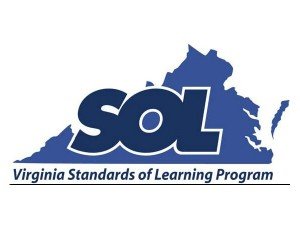 By Margaret Carmel
By Margaret Carmel
Capital News Service
RICHMOND – Until two years ago, Virginia third-graders were required to take four Standards of Learning exams per year. Students were tested across all disciplines and asked to demonstrate skills taught not just in third grade, but going back to kindergarten. Only five states tested young elementary school students this much.
Now, Virginia third-graders are tested only in math and reading with less cumulative material from previous grade levels. Testing was reduced in other grade levels, too. From a high of 34 SOL tests, students in the commonwealth now must pass 29 such exams before receiving a high school diploma.
A bill proposed by Sen. John Miller, D-Newport News, would have taken this a step further. Senate Bill 203 sought to roll back SOL testing to the federally mandated minimum of 17 SOLs before graduation.
This won’t happen as quickly as Miller hoped, however. The Senate Health and Education Committee voted unanimously to postpone consideration of the issue until 2017.
Miller believes reducing testing will help students think critically, not just remember facts and figures.
“We are raising a generation that is good at memorizing material,” Miller said. “We have students who can tell you when we went to the moon, but they have no idea why.”
The standards students, schools and teachers are held to are in flux as the federal government shifts from the No Child Left Behind Act under the George W. Bush administration to the Every Student Succeeds Act that President Barack Obama signed late last year.
In 2014, the General Assembly created the SOL Innovation Committee to help develop initiatives to improve the Virginia education system.
Steve Roberson, who chairs the committee, stressed the importance of moving slowly to study the impacts of recent federal changes.
“Right now we’re in a period of limbo,” Roberson said. “Our recommendations maintain the rigor of Virginia public schools while striking a balance with appropriate testing.”
Miller wasn’t the only legislator seeking to reduce SOL testing this year. Similar bills also were proposed by Democratic Sens. John Edwards of Roanoke and Jeremy McPike of Woodbridge, as well as Republican Sen. Glen Sturtevant of Midlothian.
The Senate Education and Health Committee folded all of the proposals into SB 203 and then put off that bill until next year.
Besides SOL testing, legislators and the SOL Innovation Committee have been focusing their attention on another issue: high school curriculum.
SB 336, also introduced by Miller, aims to emphasize internships and industry certifications for high school students. Miller said Virginia can serve students more effectively by changing how they earn their high school degrees.
“This redesign will help better prepare students for a career,” Miller said. “Be it operating a crane at Norfolk Naval Shipyard, or programming computers in Northern Virginia, we need to help students who don’t want to just go on to college.”
SB 336 is moving swiftly through the legislative process. It was passed unanimously by the Senate on Feb. 9. And on Wednesday, the House Education Committee voted 19-3 in favor of the bill. The full House of Delegates is now considering the measure.
Roberson said big changes are on the horizon for Virginia’s schools. “There is more bold legislation to come,” he said.
Support Bristow Beat - Donate Today!